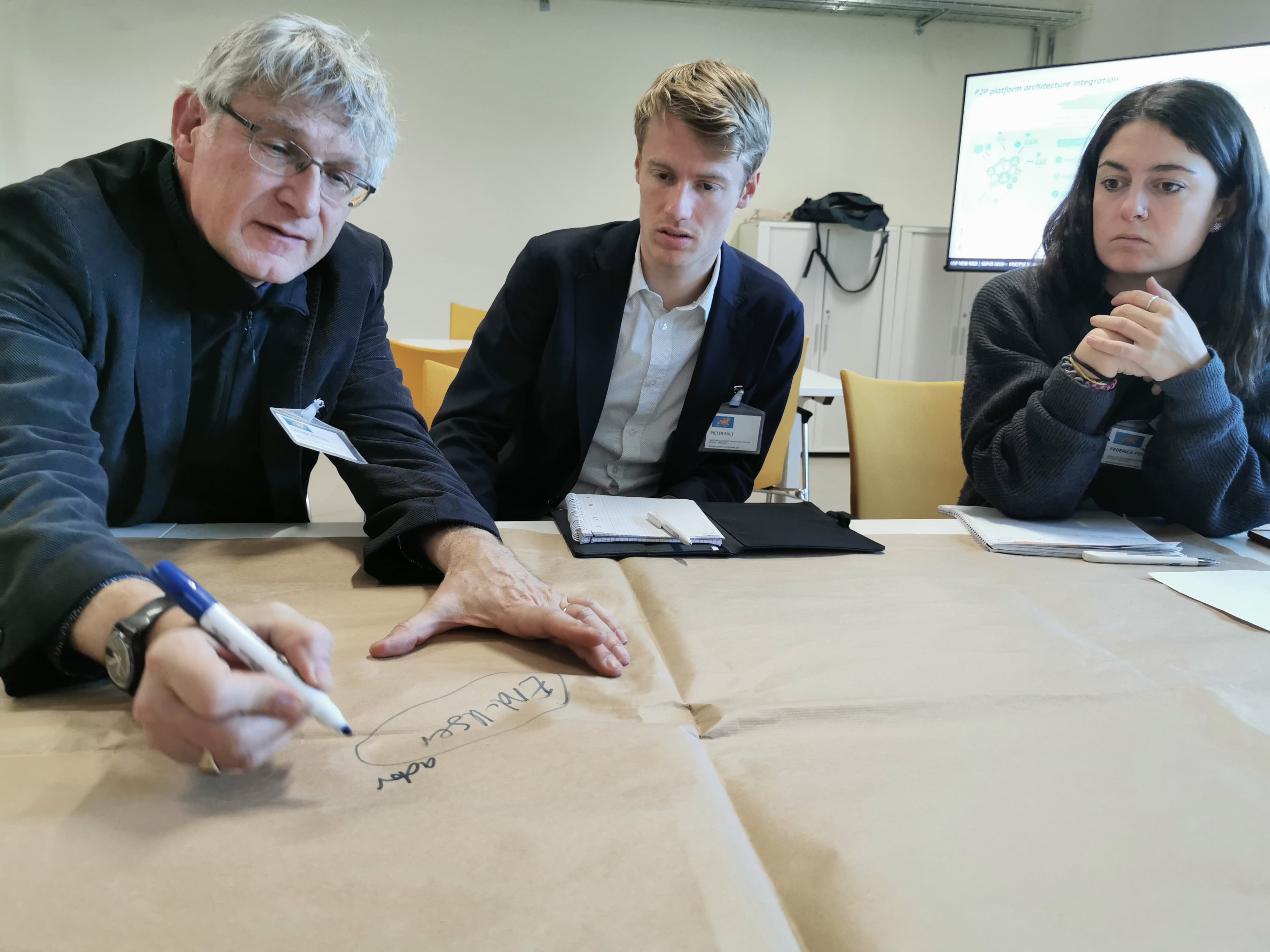06 Jan 2020 — During the SSPCR Conference, EDPL hosted a workshop focussing on the question – which tools can heritage sites provide to their citizens to allow them to carve a positive energy future?
During the SSPCR Conference, EDPL hosted a workshop focussing on the question – which tools can heritage sites provide to their citizens to allow them to carve a positive energy future?
POCITYF’s Lighthouse city Évora faces, as many other European cities, legal restrictions when considering conventional sustainable solutions, e.g. PV installation in buildings’ rooftops or façades.
To allow Évora’s citizens to be more sustainable, POCITYF will deploy a P2P transactive platform, designed from an existing platform – Connect with EnergyTM – that allows the creation of fundraising campaigns to fight energy poverty. Within POCITYF, innovative modules will be added to this platform, enabling, at least, three different use cases:
- Local Energy Market & Sustainable Behaviour Rewarding Mechanism: a P2P market inside each demo area and between the different demonstration sites will be deployed, allowing for direct energy trading between participants. Besides that, participants will earn project-specific tokens, acquired via sustainable behaviours (related to eMobility, buildings’ energy savings or reduced wasted management, for instance), using smart contracts;
- Social Innovation: citizens’ empowerment by allowing them to publish campaigns and donate euros/tokens (donations based on sustainable behaviors, linking the energy domain with citizens and companies’ social responsibility – connection with use case 1) to alleviate energy poverty;
- Green economy: creation of virtual energy wallets, endowing users with the ability to invest in a renewable energy project.
Today at #SSPCR we had a very fruitful workshop discussing tools we can provide to #heritage #cities to become greener. P2P platforms will allow these cities to achieve their #PositiveEnergy goals https://t.co/KRzRGAfKcU pic.twitter.com/IguVcK7Hil
— POCITYF (@pocityf) December 11, 2019
The workshop focused on some of the challenges that are faced in this initial stage of ideation of the platform:
- Which actors shall be involved and with which role?
- How to ensure long-term citizen engagement?
- Which revenue flows shall be established in order to present the best business case for all?
The workshop results showed that the use of a P2P transactive platform can be a promising solution to engage city-actors in more sustainable behaviour in protected heritage cities. Further research and practice will be shared.
Discover more about the CONFERENCE ON “SMART AND SUSTAINABLE PLANNING FOR CITIES AND REGIONS.
